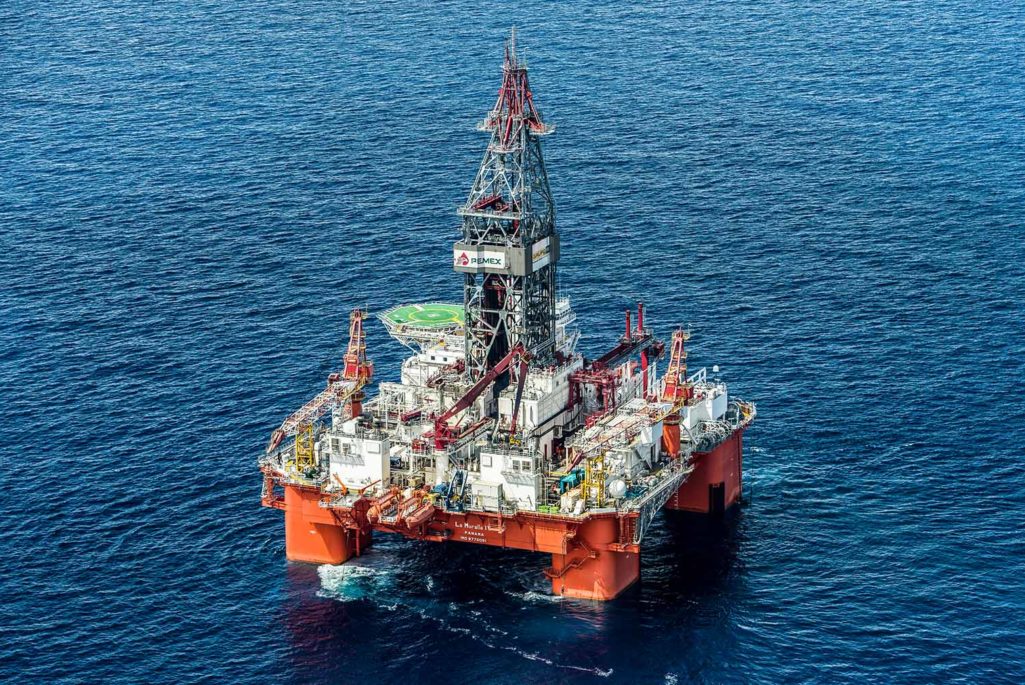What Deepwater Oil and Gas Companies Can Learn from the Shale Revolution

Aerial view of La Muralla IV exploration oil rig, operated by Mexican company "Grupo R" and working for Mexico's state-owned oil company PEMEX, in the Gulf of Mexico. The semisubmersible platform is able to drill to a depth of 10,000 meters.
Photo: Omar Torres/AFP/Getty Images
Shale drillers are forging new operating models that will continue to challenge the conventional practices of the oil and gas business in a number of key areas. At first glance, these operating tactics may appear more relevant for managing a Silicon Valley startup than for running an oil and gas company. Like many high-tech startups, shale drillers manage a rapidly changing set of daily activities and must continuously improve technologies across widely dispersed assets and supply chains to remain competitive.
There are four key lessons from the next phase of the shale revolution that deep-water operations can benefit from:
1—Integrate technology and operations more closely. In shale, the winners rapidly deploy the best new technology into the next well by holding local business leaders (asset leaders) fully accountable for technology pilots. They do not have separate technology and operations budgets with years-long cycles. Team performance metrics are simple and directly reward all contributors for producing profitable barrels or enhancing ultimate recovery. Technology portfolios are focused on innovating in one or two key areas, while at the same time remaining on top of a broader set of best practices used by competitors.
Like shale drillers, conventional oil and gas players should focus on improving the productivity of their sites instead of accepting the status quo. To do so, oil and gas companies should concentrate their resources on those improvement programs that will affect fundamental business metrics, such as well and reservoir productivity. At the same time, they should re-evaluate how they filter ideas from other facilities and operators to implement innovations more quickly.
There are four key lessons from the next phase of the shale revolution that deep-water operations can benefit from.
2—Become more agile. Shale drillers have learned that the best decisions are made by fully empowered and integrated teams that are not divided by functional lines. Business, technical and safety managers work side by side, wherever possible. A very small corporate center serves as the knowledge facilitation hub. The team is bound together by a culture of continuous improvement in which it is OK to fail, and where failure does not mean the end to one’s career.
It’s time for conventional operators to finally elevate continuous improvement practices to a new level of effectiveness by eliminating organizational barriers to swift decision-making and rapid implementation of new innovations. They should also strengthen the facility manager’s role to that of integrator and operations manager, running closely integrated teams to realize excellent operations.
3—Make better use of data analytics. Leading shale operators are implementing factory pull models. They work backward from the new drilling and maintenance drilling inventory requirements to guard against operational disruptions and to ensure that the best technology will be applied as fast as possible. Systems are implemented to provide an integrated team with comprehensive cost and performance data for each well, supported by more sophisticated predictive analytics to find and exploit well performance and supply chain opportunities.
Most conventional oil and gas companies have significant data that is often unexploited. This data can be mined deeper to provide insights for better performance. Digital oil field management systems and other such initiatives have not delivered the value originally promised because they have become overly complex and misaligned with business objectives. Oil and gas companies can streamline these systems and improve their performance by re-examining the biggest opportunities to exploit the operational data to develop higher impact, predictive analytics.
4—Re-engineer financial structures. Shale operators are structurally altering their cost base in order to thrive in a more volatile and uncertain price environment. At one end of the spectrum, some are considering acquiring critical assets such as pressure pumping equipment and water infrastructure systems at cents on the dollar, and then leasing them back through an arm’s length third party. At the other end of the spectrum, many are considering transferring non-strategic infrastructure into master limited partnerships, with much lower expected rates of return.
Conventional oil and gas companies should also begin to re-examine which assets still make sense to own, and which ones can be dropped down and leased back under more favorable terms. For example, it might make sense for some operators to consider leasing certain topside components—such as compressors, pumps or entire topside facilities—from new industry entrants such as private equity-backed specialist firms.
More Sustainable Operations
Shale producers may be struggling with challenging business conditions like everyone else in the industry, but they have already changed people’s ideas of what is possible. The improvements that many are putting in place now portend an even more competitive new wave of shale drilling. For those deepwater operators willing to consider these innovations, shale drillers’ improvements to their operations can also be the starting point for more profitable and sustainable conventional oil and gas companies.
This piece first appeared in Oliver Wyman’s Energy Journal.








